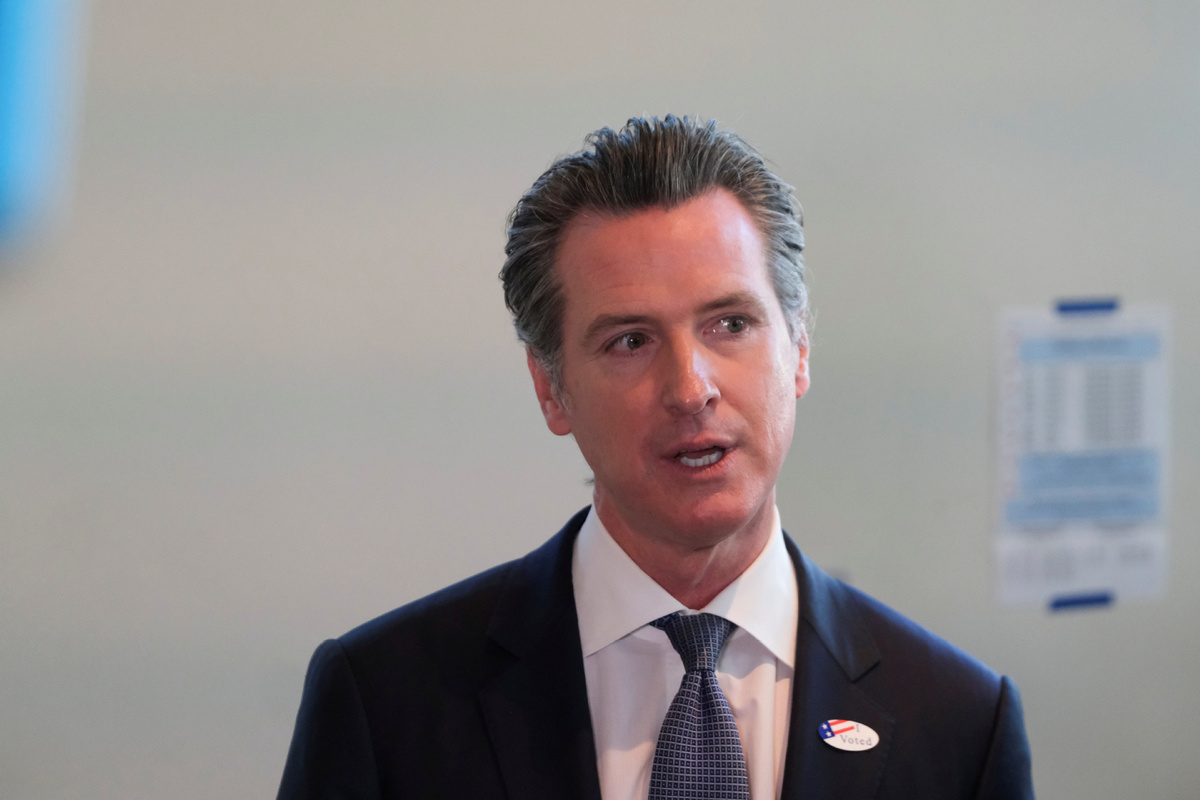Virus rolls back reopenings


The number of COVID-19 cases surged in California, forcing Governor Gavin Newsom on Monday to roll back much of the state's reopening, and the White House appeared to be trying to discredit the credibility of Dr Anthony Fauci, director of the National Institute of Allergy and Infectious Diseases, who has publicly disagreed with President Donald Trump several times.
Newsom said he would close indoor operations statewide for restaurants, wineries, movie theaters, zoos and card rooms, and bars would be forced to close all operations.
"We're going back into modification mode of our original stay-at-home order," Newsom said. "This continues to be a deadly disease."
California was averaging more than 8,000 new cases a day as of Sunday, more than double what it was experiencing a month ago.
In at least 30 of the state's hardest-hit counties, businesses would be forced to close indoor operations for malls, fitness centers, places of worship, noncritical offices, hair salons and barbershops. Roughly 80 percent of the state's population lives in the affected counties, Newsom said.
In a move that goes against Trump's demand that the nation's schools reopen, California's two largest public school districts said Monday that instruction will be remote-only in the fall, citing concerns that rising novel coronavirus infections in their areas pose too great a risk for students and teachers.
The Los Angeles and San Diego unified school districts, which together enroll some 825,000 students, are the largest in the country so far to abandon plans for even a partial physical return to classrooms when they reopen next month.
Fauci has contradicted Trump's comments on the pandemic a number of times, pushing back on the president's claims that the outbreak is improving and attributing hasty state reopenings to the recent surges.
And on Monday, Fauci again said that the recent reopenings by several states drove the nationwide spike in cases.
Fauci made the remarks in an interview with Stanford University School of Medicine Dean Lloyd Minor.
"We did not shut down entirely," Fauci said. "And that's the reason why — when we went up, we started to come down, and then we plateaued at a level that was really quite high, about 20,000 infections a day. Then, as we started to reopen, we're seeing the surges that we're seeing today."
Trump economic adviser Peter Navarro criticized Fauci earlier Monday. "When you ask me if I listen to Dr Fauci's advice, my answer is only with caution," he told CBS News.
Navarro said Fauci "has been wrong about everything I have ever interacted with him on".
Navarro's comments followed a White House statement given to The Washington Post over the weekend that said, in part, "several White House officials are concerned about the number of times Dr. Fauci has been wrong on things".
The statement including a list of remarks by Fauci since the start of the pandemic seemed intended to show him in a negative light.
White House press secretary Kayleigh McEnany on Monday denied that the information distributed to reporters had been intended to be a smear campaign against the country's top immunologist but was instead a "direct answer" to the Post's questions.
"There is no opposition research being dumped to reporters. We were asked a very specific question by The Washington Post," McEnany said. "The notion that there's opposition research and that there's Fauci versus the president couldn't be further from the truth. Dr Fauci and the president have always had a very good working relationship."
"I have a very good relationship with Dr Fauci, I've had for a long time," Trump said at the White House during a roundtable event honoring police. "I find him to be a very nice person. I don't always agree with him."
Trump on Monday retweeted a conspiracy theory from former game show host and podcaster Chuck Woolery, who suggested that the US Centers for Disease Control and Prevention (CDC), the "Media, Democrats (and) our Doctors" are lying about COVID-19 to hurt Trump in November's general election.
































